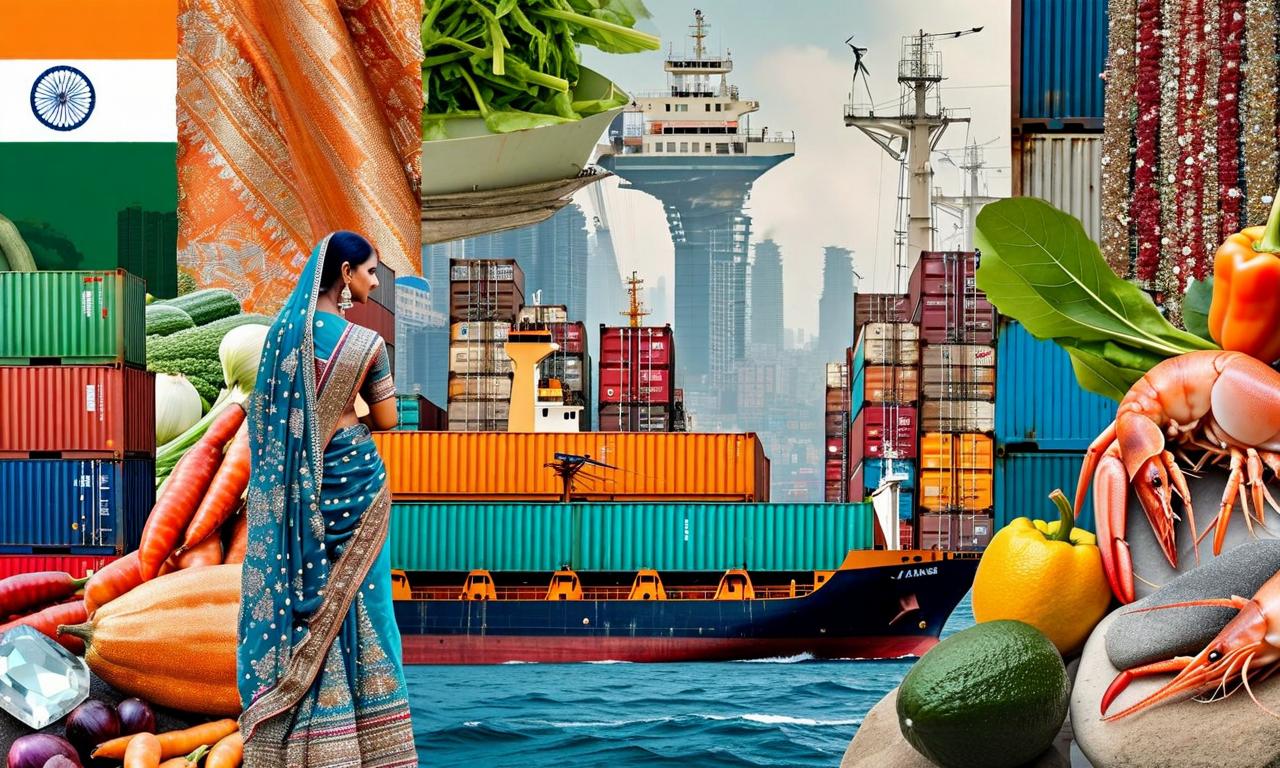US 50% Tariff on Indian Exports Sparks Crisis for MSMEs
The United States has imposed a 50% tariff on most Indian exports, severely impacting India's micro, small, and medium enterprises (MSMEs). Key sectors affected include textiles, gems and jewelry, agriculture, and seafood. Over 60% of Indian exports to the US are now subject to this duty. Experts recommend market diversification, policy reforms, and a three-pronged strategy to mitigate the crisis. The situation poses a significant challenge for Indian MSMEs, requiring swift action from the government and industry bodies to maintain export competitiveness.

*this image is generated using AI for illustrative purposes only.
The United States has imposed a 50% tariff on the majority of Indian exports, triggering a severe crisis for India's micro, small, and medium enterprises (MSMEs). This drastic measure is threatening jobs, undermining competitiveness, and jeopardizing entire industry clusters across India.
Key Sectors Impacted
The tariffs have hit several crucial sectors:
- Textiles and Apparel: Major hubs in Tirupur, Noida, and Ludhiana are among the worst affected.
- Gems and Jewellery: Industries in Surat and Mumbai face significant challenges.
- Agriculture and Seafood: Exports of shrimp, spices, tea, and rice have become commercially unviable.
- Other Affected Industries: Carpets, leather, footwear, handicrafts, chemicals, and engineering goods.
Scale of Impact
The tariff's reach is extensive, with over 60% of Indian exports to the US now subject to the 50% duty. This is particularly concerning given that India's textile exports to the US alone were valued at $11.00 billion last year.
Expert Recommendations
Industry experts have proposed several strategies to mitigate the crisis:
Market Diversification: Exploring new markets, with a particular focus on Russia. Currently, India's textile share in the Russian market is less than 1%, indicating significant growth potential.
Policy Reforms:
- Resolving the Goods and Services Tax (GST) inverted duty structure
- Offering interest moratorium for US exporters
- Increasing Rebate of State and Central Taxes and Levies (RoSCTL) refunds to 10-15%
- Accelerating Free Trade Agreements (FTAs) with the UK and EU
Three-Pronged Strategy:
- Diversifying into Middle East, Europe, and Asian markets
- Restructuring supply chains
- Leveraging working capital mechanisms
Outlook
The situation presents a significant challenge for Indian MSMEs, which form the backbone of the country's export sector. The government and industry bodies are under pressure to act swiftly to protect these businesses and maintain India's export competitiveness in the global market.
As the crisis unfolds, it remains to be seen how effectively these proposed measures can be implemented and whether they will provide the necessary relief to the affected sectors. The coming months will be crucial for Indian MSMEs as they navigate this challenging trade environment and seek new opportunities in alternative markets.
























